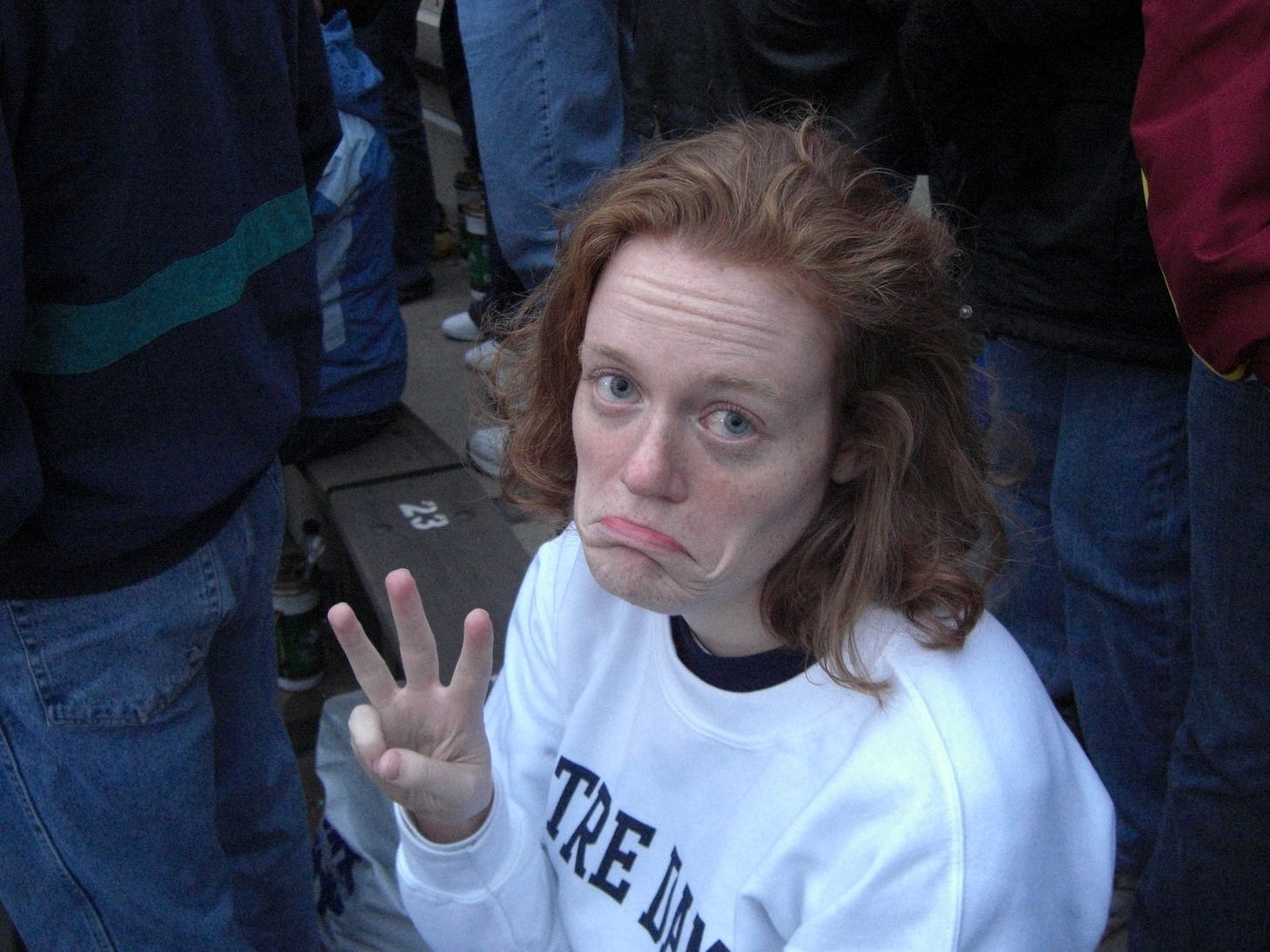
Dear Friends,
Graduate school at Notre Dame (I received my Ph.D. in History in 2015) was just heaven for me. I’d do it again in a second.
But pursuing a doctorate in the humanities is not something to commit to carelessly. There are many wonderful things out there in the world for a young person to pursue, and more schooling is not a good reflexive choice. It needs to be a deliberate one.
Graduate school requires self-knowledge, flexibility, realism, and perseverance, as well as a certain degree of “fit.” You also have to be okay with working hard for many years a context of professional uncertainty and financial sacrifice. You have to eat a lot of ramen. It’s not for everyone.
How, then, should we advise young people who are considering grad school in the humanities? How, especially, should we advise young women or men who want to go to grad school, but also anticipate wanting to “stay home” with their children someday?
Read today’s essay here:
“On Advice for Potential Graduate Students in the Humanities”
Did you go to grad school? Would you agree with this advice?
Whether or not you work in academia, how would you advise your own child as regards grad school?
If you have any interest in homemaking (whether or not you would combine it with another career), you really should listen to the podcast episode that I mention in the essay,
's interview with :
Have a great day!






Dixie, even though I'm not in the humanities I would agree wholeheartedly with #3 and #4 for anyone considering a PhD of any kind. I left a fully funded STEM PhD program because no one told me what getting a PhD really meant, but in their defense, I didn't really ask! My discernment was basically, "I like school, I like to learn things, other people seem to think this would be a good thing for me to do, so OK." This is . . . insufficient to say the least ;-) My advisor told me that a PhD requires a "fire in your belly" to know as much as possible about your specific area, and I was definitely lacking in that.
But my dad gave me some good advice when I graduated from college that I think ties in to the question of being prepared to shift roles in life - "You can lose a lot in this life; people you love, money, your reputation, even your health. But no one can ever take the things you learn away from you." This is why I hate the notion (or even the implication!) that anyone who isn't "using" their college degree is "wasting" it. Nothing that you learn is ever, ever wasted.
Graduate school (PhD) is generally fully funded. Masters degrees are generally not. Around 60K is what I see most running around for a counseling degree.
I would implore people to first think of family life and then a career that can go along with that. I turned down a funded Masters degree in accounting because I would have to take on more debt (non-tuition costs like rent etc) and I would have to delay having a family until my early 30s while I got the degree, worked for the credentials, slaved away at the cube farm and then could take maternity leave and put my child in day care.
Women and men are different. Our biological clocks are on different timelines. It would make more sense for society to push men into college/trades at 16 and women into practical life skills training if they even for a second think they want children/family. And by push, I don't mean force.
I somehow stumbled into a relationship at 24 and decided to become a homemaker who plans to homeschool and now have 2 children and I'm pretty happy with the decisions. I'm sure I would've been depressed on a cube farm.
But, this isn't to say that once my children are older, I can't go back to college and get another degree. It goes back to the different clocks/timelines for men vs women.
I just wish people were told the truth, at young ages in mass.